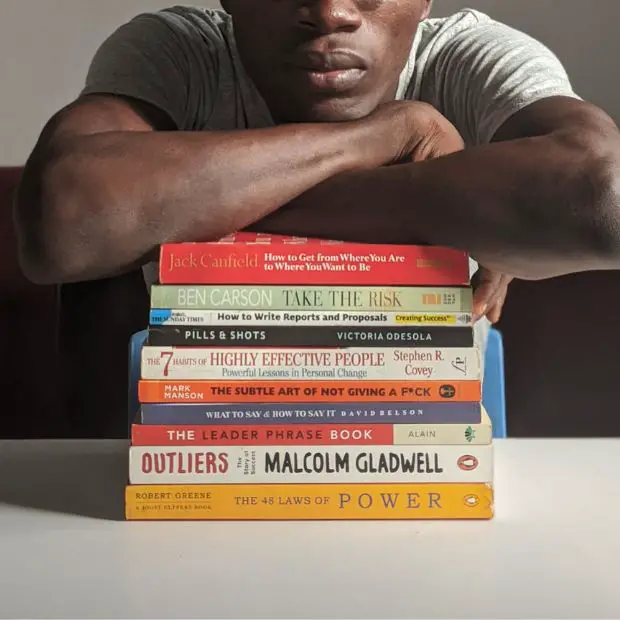
Many different types of writers make a living through their skills and experience as wordsmiths.
This guide will introduce you to 15 types of professional writers, from novelists to copywriters, to bloggers. Read on to gain a better understanding of various writing styles and genres, as well as the major classifications or forms of writing.

15 Different Types of Writers
I. The Fiction Writers
As the name suggests, these writers deal with entirely made-up stories. Fiction writing requires a lot of imagination and creativity, as you have to come up with original stories complete with their own set of characters, plots, situations, or even an entire imaginary world. Some popular sub-genres of fiction include romance novels, science fiction fantasy books, and mystery thrillers. The list goes on and on. An author may choose to write in a single genre or mix several subgenres into their story. As an example, a writer may combine mystery elements with the fantasy genre. But no matter which type of story you want to tell, remember that ultimately it’s all about creating a captivating world for your readers to delve into. Are any aspiring novelists reading this blog post? Under this major category, you’ll find the following types of writers:
1. Novelists and Short Story Writers
A high percentage of bestselling authors, particularly novelists past and present, belong to this category. While novels and short stories may be based on true life tales, authors usually exercise their artistic license to embellish or put a spin on the stories. But most novels are entirely fictional. Some of the most notable novelists I can think of are J. R. R. Tolkien of the Lord of the Rings series, Stephen King, the king of horror and suspense stories, and Agatha Christie, the queen of detective mystery thrillers. As for short story writers, they usually publish a collection of works.
2. Playwrights and Screenwriters
By definition, playwrights write scripts for plays while screenwriters write scripts for films. However, the work of these writers commonly intersects, especially today. Hundreds of stage plays were adapted into movies (e.g. Phantom of the Opera, Les Miserables, etc.), and vice versa (e.g. Shrek, Catch Me If You Can, etc.). Both a playwright and a screenwriter have to come up with an interesting story but also need to write dialogues that flow well and are easy to deliver through spoken words. So if you’re interested in writing for the theatre or film industry, this could be the path for you.
3. Children’s Book Authors
These authors create and publish children’s books that primarily educate and entertain young readers. While they can also write true tales, they have to put a spin on them too. They usually have to tell stories that are fantastical, whimsical, funny, and adventurous. Some of the most successful authors in this genre are Dr. Seuss (Cat in the Hat), Roald Dahl (Willy Wonka), and The Brothers Grimm, from whom we owe the collection of classic fairy tales we grew up.

II. The Non-Fiction Writers
Not all writers deal in make-believe. Non-fiction writers aim to inform or inspire the audience by using actual events, people, places, or facts. They typically conduct extensive research, interview people, and gather facts before actually writing. These writers deal with factual information instead of fictional tales. They could write biographies, history, academic subjects, and many others in the realm of reality. So, it’s pretty much anything that conveys accurate information to readers. If you’re interested in actual life events and helping others learn new things, this could be perfect for you. Non-fiction writing requires textual eloquence and excellent research ability to present complex information in an easy-to-understand way. Some of the professional or even amateur writers that belong to this category are:
4. Biographers and Memoirists
Biographers and memoirists tell the true life story of actual persons. The subject can be themselves (autobiography) or somebody else they admire or has commissioned them to do so. A lot of bestselling biographies have famous political figures in history as their subjects such as John F. Kennedy, Winston Churchill, Napoleon Bonaparte, etc. Also popular are the life stories of titans of industries such as John Rockefeller of Standard Oil, Sam Walton of Walmart, Steve Jobs of Apple, and Jeff Bezos of Amazon.
5. Historians
Historians write about the chronology of events of certain eras, locations, and the people who played major roles in those epochs. They could also focus on specific social strata, industries, fields, etc., and not just the general world or national history. For example, there are political historians, cultural historians, film and television historians, sports historians, and many others. If you are a history buff who likes to research and write about major happenings past and present, then this can be a niche for you.
6. Academic Writers
Most, if not all academic writers are highly educated and are experts in their chosen professions. They write educational materials such as textbooks, theses, dissertations, research findings, studies, reviews, and other pieces that intend to increase knowledge in their field. Many of the books published in this genre are not just about general knowledge. They usually focus on certain areas of specialty such as medicine, engineering, law, natural science, and many others. There are also academic books that are instructional, such as tutorials and reviewers.

7. Trade Book Authors
Closely related to academic writers, these authors write about topics related to their respective areas of expertise for a general readership. Common topics covered here include business, economics, technology, psychology, philosophy, parenting, self-help, pop culture, home improvement, style guide, and many others.
III. The Editorial Writers
Typically writing for newspapers, news agencies, magazines, journals, and other print or online media, editorial writers churn out publishing-worthy articles or news items almost daily. While most professionals in this category write non-fiction, there can be cross-overs to the fictional world, depending on which publication they are writing for. For example, if you are a columnist or contributor to a fantasy journal, then you must submit something out of this world to the publisher. Some good examples of editorial writers are:
8. Journalists
Journalists may report current events on local, national, and international levels. They are often employed by newspaper publishers, broadcasting networks, and news agencies. There are also freelancers in this business or what you might call backpack journalists. They make money based on the items they submit to publishers and broadcasters or by publishing them on their blogs or websites. Men and women in this profession may also exclusively cover specific areas, such as politics, business, crimes, entertainment, sports, and many others. It is essential for journalists is strictly adhere to the facts. This means accuracy is of utmost importance when you put your fingers on the keyboard and start putting words together on the page.

9. Magazine Contributors
Since most magazines only publish once or twice a month, their writers or contributors feel less daily pressure than journalists. Magazine writers usually report facts interspersed with their viewpoints. But then again, some write fiction too, depending on the publication they work for. More often than not, they write their observations and opinions on topics or events in their particular niches. This may include food & beverage, fashion, personal grooming, sports, celebrities, inspirational tales, and more. If you’re interested in building a career here, then you’ll need to be comfortable doing research and develop strong written communication skills.
10. Online Content Creators
This category includes professional bloggers, influencers, and freelance writers. Bloggers and influencers usually create their content on their sites or various social media platforms. Those who build successful blogs earn continuous passive income from ads, affiliate marketing, sponsored posts, and other revenue streams. Freelance writers, on the other hand, earn a living through writing gigs where they may be paid by the hour, per number of words, or project basis.

IV. The Business Writers
Pen-pushers (or keyboard-tappers) in this category create pieces that promote a company or an event, build brand equity, raise funding, or sell products. They may be directly employed by companies or agencies or work as freelancers or private contractors. Some of the most well-known types of writers in this category are:
11. Copywriters
Copywriters typically write marketing, sales, and advertising copies, thus the title. They create write-ups for printed and online brochures, ads and advertorials, press releases, public relations, and other business-related communiques. Many individuals in this profession are directly employed by large corporations, advertising agencies, marketing agencies, and PR agencies. But again, there are many thriving freelancers in this field too.
12. Technical Writers
As the title suggests, those in this profession write about technical stuff. It may include product and technology documentation, user manuals, and other instructional write-ups. Technical writers must explain complex technical matters in terms that every layperson will understand. They should also be eloquent in giving step-by-step instructions in written form. Some companies specifically offer technical writing services.
13. Grant Writers
This special breed of writers creates proposals, implementation plans, and other required documents for securing grants. Their work must be able to persuade grantmakers, both government and private donors, to fund a certain project, a charitable institution, or a socio-civic organization. Being a grant writer, you can help worthy causes that might benefit people in need, the environment, or the society you are living in.

V. The Artistic Writers
Writing for the sake of art can be both fulfilling and lucrative. Artistic writers mostly write pieces that convey creativity and free expression. Their work may be for personal satisfaction, commercial purposes, or both. They are like painters but instead of using oil or acrylic paints; they use their words.
14. Poets
Poets deal with expressing emotions and ideas through the use of words. Their work can be either written or spoken and often makes use of literary devices such as metaphor and simile. A poem is a piece of literature that makes use of rhythmic qualities of language, such as phonaesthetics, sound symbolism, and meter to convey meaning. A poem’s meter, rhythm, and focus on the sounds of syllables, words, and phrases distinguish it from other types of literature. The purpose of poetry is to convey meaning through mental imagery and metaphors rather than to provide complete, grammatically accurate sentences. Depending on the style, poems can range in length from a few lines to several pages. If you’re interested in exploring the depths of human emotion and finding new ways to express yourself, then poetry might just be your thing.
15. Songwriters
Songwriters may be a subspecies of poets. They write lyrics for music to entertain people and be recorded for commercial release. Think about John Lennon & Paul McCartney of The Beatles, or Björn Ulvaeus and Benny Andersson of ABBA. Songwriters may also compose songs for musical plays. So, again we can see here a cross-over between songwriters and playwrights. Think about George Gershwin, Andrew Lloyd Webber, and Lin-Manuel Miranda. There are many other types of writers, but these are just some of the more common ones. Whichever type speaks to you, remember that all it takes is practice and a lot of patience to become a brilliant writer.
The Various Forms of Writing
Different types of writing serve different purposes. They can be categorized as:
- Expository writing – used to inform the reader about a particular topic
- Persuasive writing – used to convince readers to take action or believe in something
- Narrative writing – used to tell a story
- Descriptive writing – simply describes something without trying to convince the reader of anything
There are many genres of expository writing, including but not limited to:
- Research papers
- News articles
- Instructional texts (like how-to guides)
- Business reports and manuals
- Technical specifications documents
- Biographies
Persuasive forms of writing include but are not limited to:
- Advertisements
- Marketing communications
- Editorials
- Proposal letters
- Political speeches
Narratives can be found in:
- Myths & legends
- Folk tales
- Short stories
- Novels
- Screenplays
- Plays
- Poems

Styles Used by Different Authors
Different types of authors have different writing styles. Some use a more formal style, while others are more casual. However, all writers use a certain style to communicate their message and engage their audience. Here are four common writing styles used by different types of writers:
1. Formal Style
We usually find this type of writing in academic or professional settings. It’s characterized by clear and concise language and its use of specific terms and jargon. This style can be difficult to read if you’re unfamiliar with the topic. But it’s important to remember that this formality helps ensure that the information being communicated is accurate and easy to understand for those who need it most.
2. Casual Style
We often see this type of writing in fiction books or articles written for a general audience. Its relaxed tone makes it easy to read, but it can also make some readers feel like they’re not getting the full story. In contrast to formal writing, casual pieces often include first-person pronouns (I, we) and contractions (don’t, won’t). They may also rely heavily on dialogue to move the plot forward or provide character development. Both are key elements in any good story.
3. Poetic Style
This type of writing can often be found in poetry and song lyrics. It uses language that is both beautiful and evocative. And while it can be difficult to understand at times, the best poems are those that make you feel something deep inside. Emotional appeal and sensory detail are two important elements of this style. To create an effective poem, a writer must be able to paint a picture with their words and stir up powerful emotions in the reader’s heart.
4. Conversational Style
Using a relaxed and informal tone makes it easy to read, like having a conversation with an old friend. But because it’s so casual, some readers may find it less trustworthy than other sources. This style often includes short sentences and simple words to make complex concepts easier to understand. It also relies heavily on storytelling, which is another way to engage readers and keep them coming back for more. So don’t be afraid to experiment until you find one that feels right for your voice. Only then will your audience truly hear what you have to say.
Conclusion
Different types of writers are essential to the world of writing. They provide varying perspectives and styles that can appeal to a wide range of audiences. So, get exploring and find your unique way as an author! Next up, you may want to explore a guide on how to make money as a writer.
Hey there, welcome to my blog! I'm a full-time entrepreneur building two companies, a digital marketer, and a content creator with 10+ years of experience. I started RafalReyzer.com to provide you with great tools and strategies you can use to become a proficient digital marketer and achieve freedom through online creativity. My site is a one-stop shop for digital marketers, and content enthusiasts who want to be independent, earn more money, and create beautiful things. Explore my journey here, and don't forget to get in touch if you need help with digital marketing.

